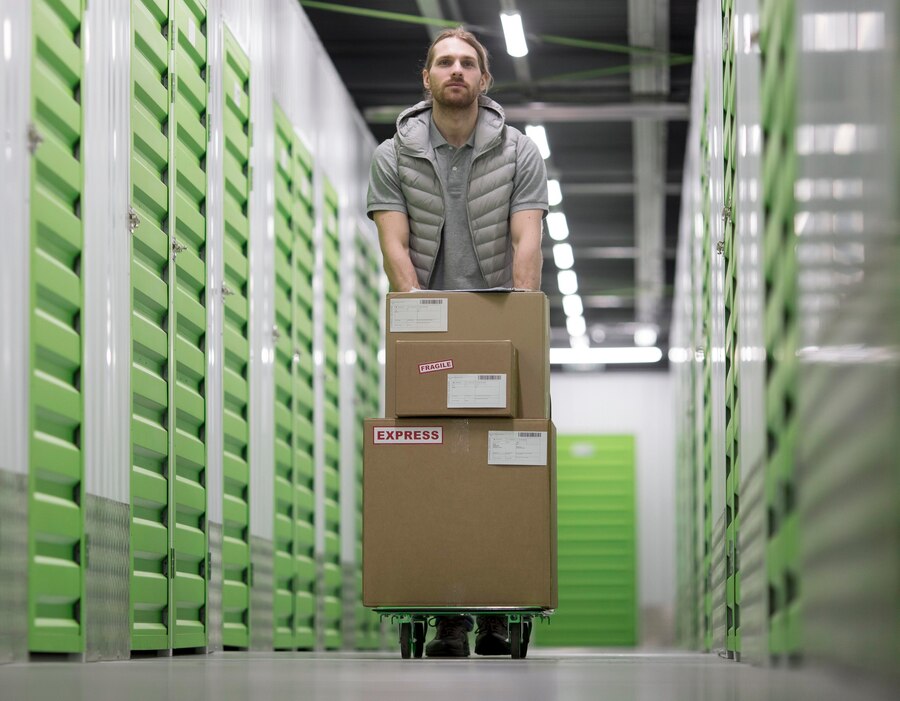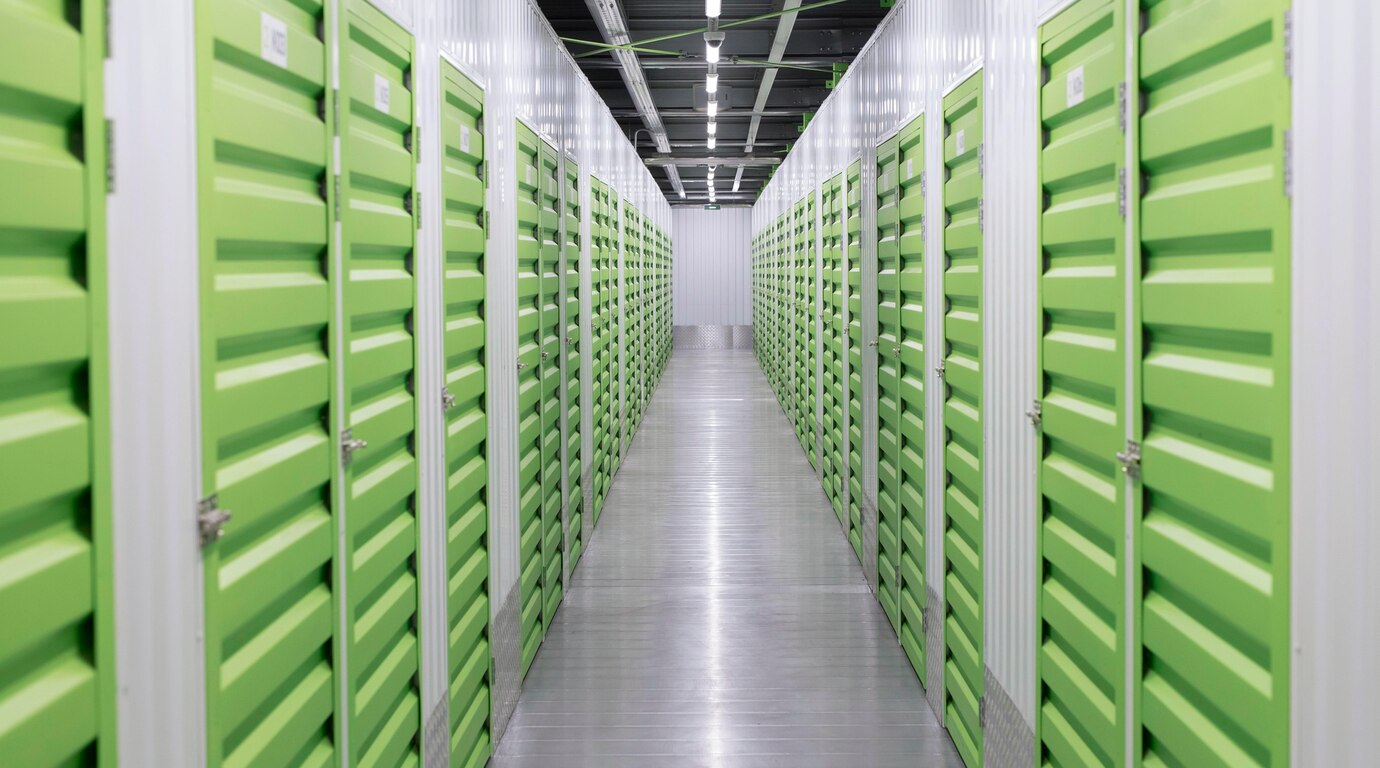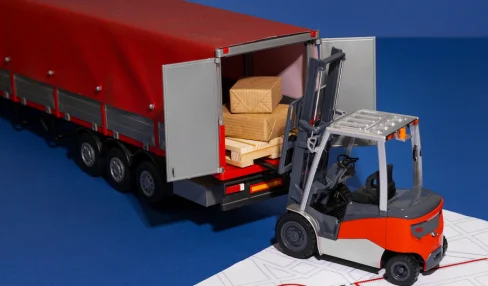Choosing A Self-Storage Facility For Your Business: 6 Key Factors
01 March 2024
5 Mins Read

toc impalement
When your business is in the process of relocating or optimizing its operations, a self-storage facility can be a valuable resource.
It offers the extra space required to safeguard valuable assets and materials. However, please remember that not all storage units are the same. Before making your decision and entrusting your important assets, there are several key factors to consider.
It’s not just a matter of available storage space; it also encompasses security, accessibility, and the level of care that your possessions will receive.
Six Crucial Factors To Follow When Choosing A Self-Storage Facility:

In this article, we will explore the top six considerations when selecting a self-storage facility to ensure that your business makes a sensible and reliable choice.
1. Security Measures
When it comes to storing your belongings, the top priority is their safety. A reputable self-storage facility will have multiple security measures in place to discourage potential thieves and give clients peace of mind. Begin by verifying the presence of surveillance cameras at the facility. Well-monitored areas not only deter potential criminals but also provide evidence in case of any security breaches.
Adequate lighting is equally essential. Well-lit facilities ensure that every nook and corner is visible, reducing potential hiding spots, which is especially crucial during nighttime visits. Additionally, having on-site security personnel is a significant advantage as they can respond immediately to any suspicious activities.
2. Size And Type Of Units
Self-storage is not a one-size-fits-all solution. Depending on your specific needs and the quantity and type of items you plan to store, facilities offer a variety of unit sizes and types. It’s crucial to assess your requirements to avoid paying for more space than necessary or, on the flip side, running out of room.
Start by creating an inventory of the items you intend to store. Once you have an idea of the volume, you can match it with the available unit sizes. Visiting the facility in person can give you a better visual perspective, helping you assess the space more accurately.
Furthermore, as storage needs change, many people seek specialized solutions like RV storage. When considering storage for larger items such as RVs, it’s important to confirm that the facility has dedicated security measures in place. Additionally, evaluate the accessibility of the RV storage area to ensure it meets your specific needs.
3. Location And Accessibility
Choosing the right location for your business’s self-storage facility can have a significant impact on your overall experience. Consider the primary purpose for seeking storage. If your business needs regular access to stored items, selecting a facility close to your premises can save time and reduce commuting costs. Opting for a more distant location might be cost-effective, but the inconvenience of travel could outweigh the savings.
Moreover, the accessibility of the facility is closely related to its location. In addition to physical proximity, it’s important to take into account the hours during which you can access your storage unit. Some facilities adhere to strict business hours, while others may offer 24/7 access. Imagine a scenario where you require an item late at night or on a holiday and are unable to access it due to restricted hours.
In essence, striking the right balance between a convenient location and flexible accessibility ensures that your business can access its stored items whenever necessary, providing both convenience and peace of mind.
4. Climate Control
When it comes to storage, it’s not just about having the space; the quality of that space is equally important. Many modern self-storage facilities offer climate control, and this feature can be vital depending on what your business plans to store.
Why is this so significant? Items such as electronics, wooden furniture, artwork, and even certain types of clothing can be sensitive to extreme temperatures and humidity fluctuations.
A climate-controlled unit maintains a consistent temperature and humidity level year-round. This helps prevent potential damage, such as mold growth, warping of wood, or the deterioration of delicate materials. For example, if your business is storing valuable artwork or sensitive equipment, changes in humidity could cause long-term damage.
While climate-controlled units may come at a slightly higher cost, the investment ensures the prolonged preservation of your business’s sensitive assets, providing you with added confidence in their safety.
5. Pricing And Contract Terms
While budget considerations are an inherent part of business decision-making, in the context of self-storage, it’s essential to look beyond the monthly rent. Transparency is key when evaluating the cost of a storage facility. Inquire about any potential hidden fees, such as administration charges, security deposits, or maintenance costs.
Introductory offers may appear attractive, with some facilities offering discounted rates for the first few months. However, asking about the regular rate after the introductory period and the frequency of price adjustments is a wise move. Unexpected increases in monthly expenses can disrupt your business finances.
Contract terms are another vital aspect. Understand the length of your lease and the flexibility it offers. Can you easily change unit sizes or adjust your storage needs? If you decide to terminate the contract, is there a notice period? Thoroughly reviewing pricing and contractual terms will help your business avoid potential misunderstandings and ensure you receive genuine value for your investment.
6. Reviews And Reputation
In today’s digital age, a company’s online reputation can reveal a lot about the quality of its service. Before selecting a self-storage facility, it’s a good idea to do some research by checking online reviews. Platforms like Google, Yelp, or local community forums can offer valuable insights from customers who have firsthand experience with the facility.
While encountering a few negative comments is common, consistent patterns of complaints, such as security issues or unresponsive customer service, should raise concerns. On the positive side, a multitude of positive reviews can boost your confidence in your choice.
Also, don’t underestimate the value of word-of-mouth. Recommendations from friends, family, or acquaintances can provide an unfiltered perspective and might even lead you to discover reliable storage facilities that are hidden gems. Essentially, tapping into the experiences of others helps you choose a reputable facility that aligns with your expectations and needs.
In Conclusion
Choosing the right self-storage facility for your business goes beyond merely finding a place for your items. It’s about ensuring that your possessions, whether they carry sentimental or financial value, are stored in an environment that prioritizes their safety, accessibility, and proper care.
Each facility will have its unique advantages, but it’s up to you to determine which factors are critical based on your specific needs. By evaluating security, location, climate control, unit size, pricing, and the facility’s reputation, you empower yourself with the knowledge necessary to make an informed decision.
Investing time in research now can prevent potential challenges in the future. Keep in mind that the right storage solution not only provides space for your items but also offers you peace of mind. Make a thoughtful choice, and your storage experience will be seamless and worry-free.
Read Also:


















Comments Are Closed For This Article